
Would you mind ing?とWould you mind my ing?の違い 編集者の英語ログ
We use would you mind to ask for something in a polite way. Fill in the blanks to complete the requests. See Grammar Explanations: Would you mind Also See: Do You Mind Would vs Do You Mind Exercise Would Rather & Would Prefer. 1. Excuse me. Would you mind (put out) _____ your cigarette? It's non-smoking area here.
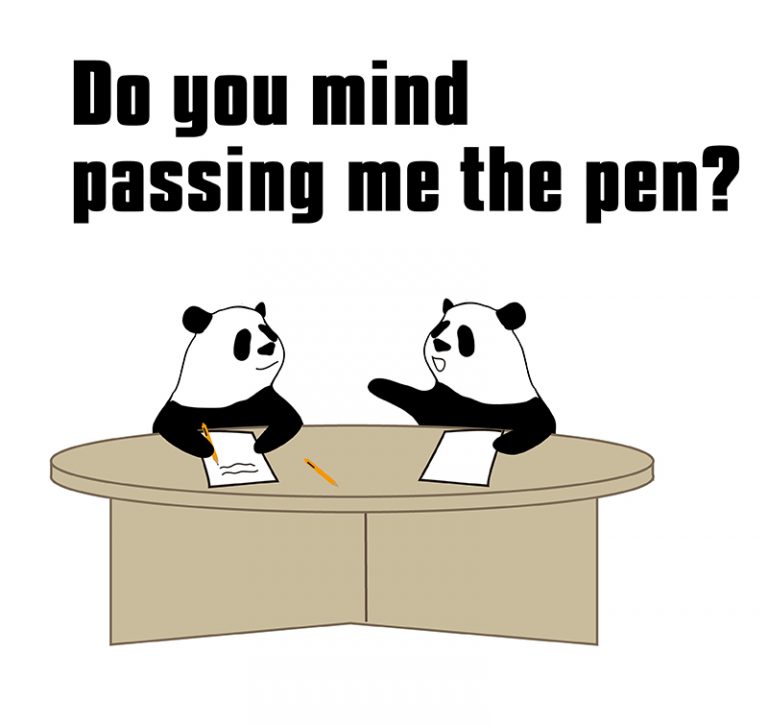
「Do you mind ing?」は「〜してもらえますか?」 eigolab(えいご研)
' Would ' in 'would you mind' refers to an uncertain situation. The verb can be used in the base form (V1) too. In the base form, it refers to a real or likely event. Would you mind if I sit you? Some grammarians consider this incorrect as we use the verb in the past form in the second conditional sentence.

tips and advice Cork English Teacher Gramática, Inglês
phrases with mind: wouldn't mind (= would like) don't mind (= I am willing to) would you mind (= will you please.?) I wouldn't mind having some fish and chips. I don't mind waiting for a few minutes. Would you mind holding this for me? verbs of saying and thinking: admit consider deny imagine remember suggest

Pin on Уча се
Dan will help you if you ask him. Past tenses are more polite: Dan would help you if you asked him. will and would: hypotheses and conditionals. GapFillDragAndDrop_MTY0MDA= See also: Verbs in time clauses and conditionals. Level: beginner. Expressions with would. We use: would you…, would you mind (not) -ing for requests: Would you carry this.

WOULD YOU MIND ? English Grammar Tenses, English Prepositions
The Usage Of Would You Mind 1st Usage: If + somebody + did + something Note: When we talk about the Present or the Past, we use Past tense following the subject. Would you mind If I used your phone now? Would you mind If I borrowed your car tonight? Attention! We may sometimes get confused by the subject. So pay attention to these two sentences.
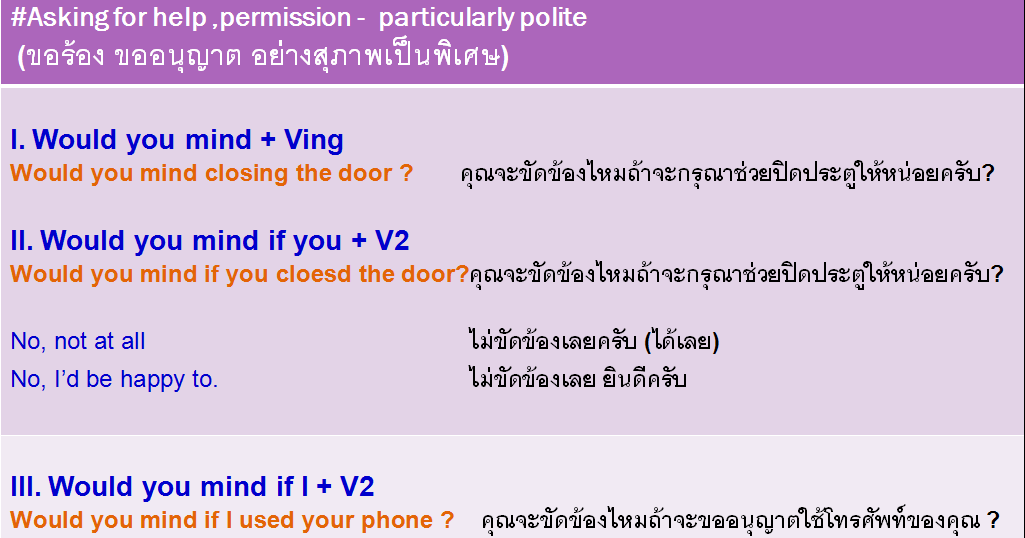
Simplified English by PLTrans would you mind.... ?
The construction of would you mind is generally used to ask permission or to understand someone's opinion of something you want to do. Loaded 0% Would you mind if I bought a new car with our money? Would you mind getting me an ice cream? I forgot my wallet. However, it can also be used as a way of demanding something from someone.

Ing MalekRehanna
Can I ask a favour of you? ~ Of course you can. Could I ask you to collect Deborah from school tomorrow ~ Of course you can. Could I possibly have another cup of coffee? ~ I don't think you should.
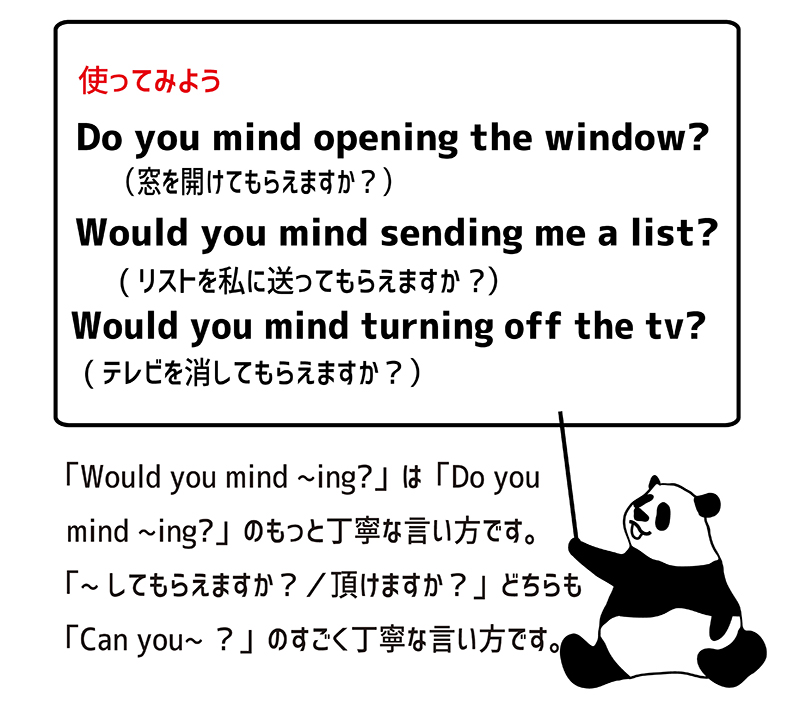
Would you mind me 123653Would you mind meaning in bengali
is a polite request. Do you mind speaking in English? comes across more harshly, and implies you are being inconvenienced somehow by not hearing English. A bit softer than something like: Do you mind, I am talking on the telephone. that you might say when someone tries to interrupt you. Share Improve this answer Follow

Would you mind ing?とWould you mind my ing?の違い 編集者の英語ログ
What Does "Would You Mind" Mean? "Would you mind" is a phrase used to politely ask someone to do something. This phrase is also used to ask someone permission to use or do something, such as eating something of theirs or borrowing something. Examples of How To Use "Would You Mind To Do" and "Would You Mind Doing" In A Sentence
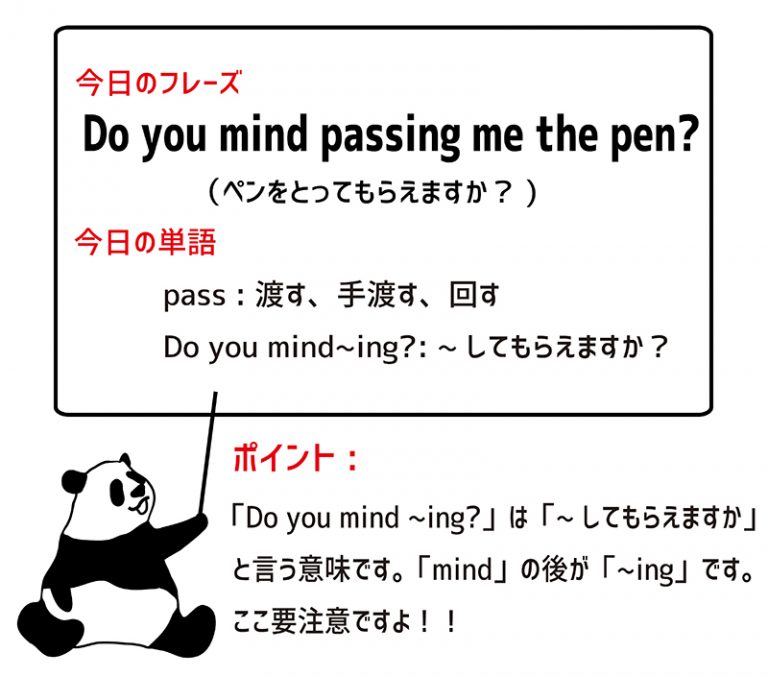
「Do you mind ing?」は「〜してもらえますか?」 eigolab(えいご研)
Let's learn how to use the Grammar ( Would You Mind) and respond to this phrases in English.
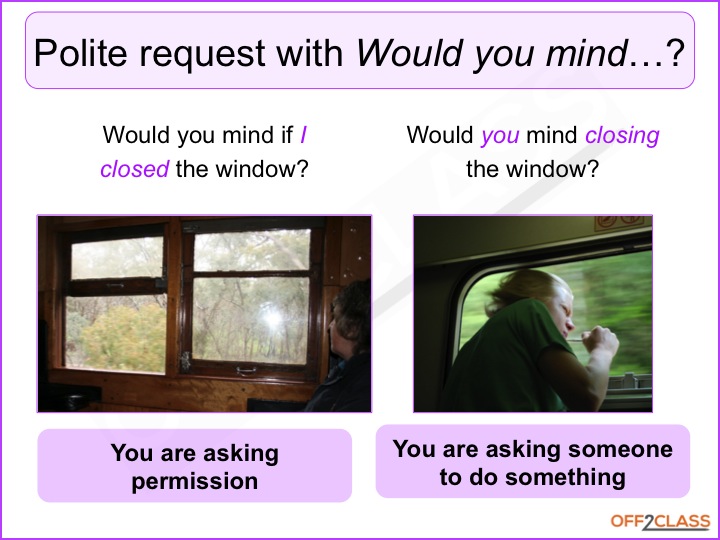
Teaching Polite Requests to Your ESL Students Off2Class
Do you mind? is more informal and direct, while Would you mind? is more polite. Also, we tend to use do when we expect the other person to say yes since we are normally asking for a minor favor. Would, on the other hand, is used when we want a bigger favor. In summary, the big difference between the two options is how polite you want to be.
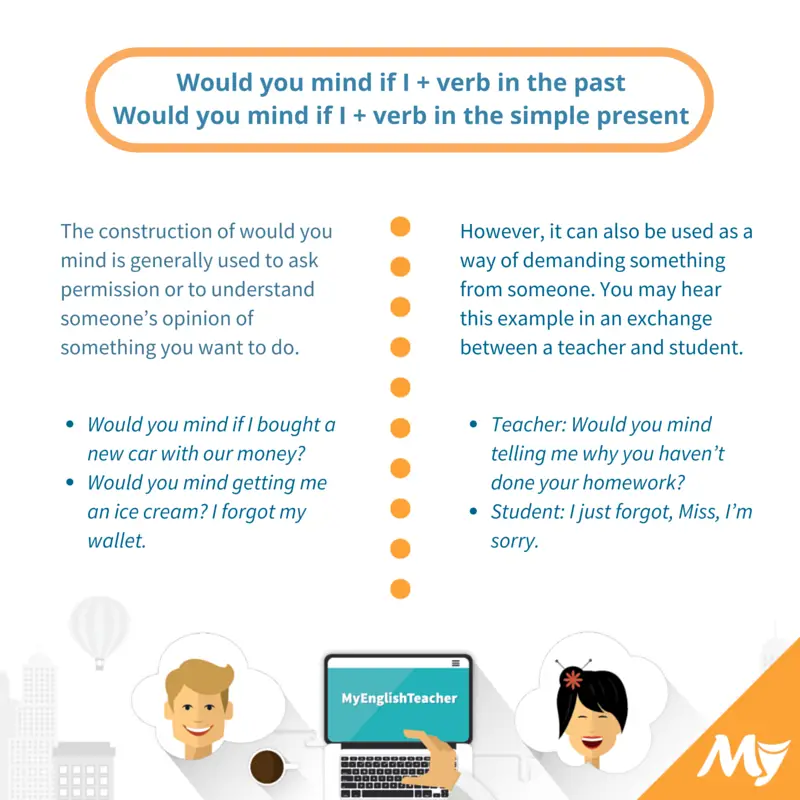
Would you mind if I + verb in the past. Would you mind if I + verb in
No, it's not correct. The verb mind can take an Equi Gerund Complement clause:. Would you mind doing something?; but not an Equi Infinitive Complement clause: *Would you mind to do something? whence the asterisk on the second sentence, indicating that it's ungrammatical. Verbs vary a lot in which complement clauses (if any) they can take; this is one part of the meaning of the verb.
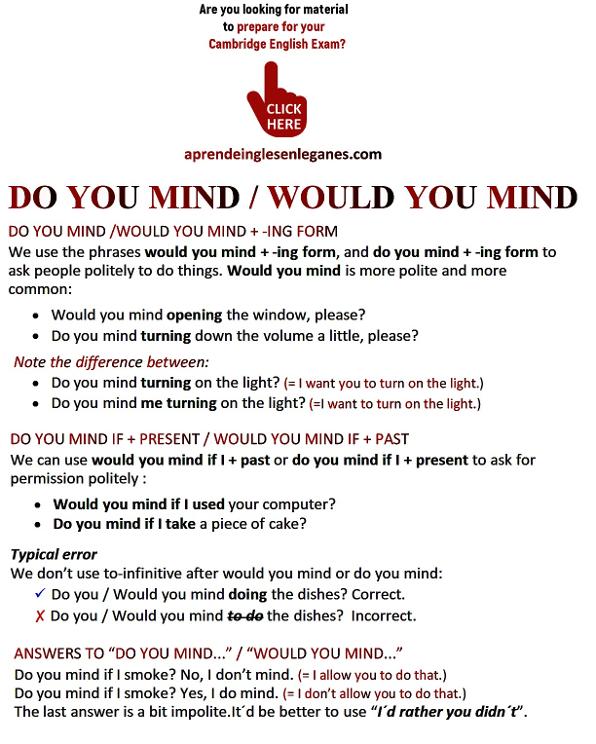
Do you mind...? Would you mind...?
The phrase is often followed by a verb in the gerund form (-ing). For example, 'Would you mind closing the door?' or 'Would you mind speaking in English? The phrase implies 'Would you mind' is a polite way of asking someone to do something. It is used to make a request or ask for permission. The phrase is often followed by a verb in the gerund.

Would You Mind 答え方
Would you mind if I opened the window? Thank you. The subjunctive past form is used to indicate that you are considering the possibility of opening, but could be dissuaded if there is an objection. The indicative present form indicates that you are more intent on opening the window. It gives the slight impression that you don't expect any.

「Do you mind ing?」は「〜してもらえますか?」 eigolab(えいご研)
"Would you mind" is a polite phrase used to make a request or ask for permission in a considerate manner. It is commonly employed to seek someone's agreement or consent before proceeding with a particular action or favor. This phrase is often used to show respect and courtesy towards others, indicating that you value their feelings and opinions.
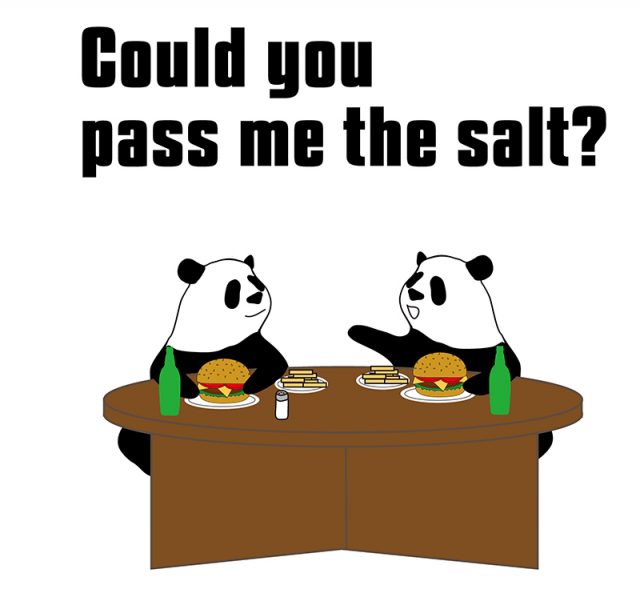
「Do you mind ing?」は「〜してもらえますか?」 eigolab(えいご研)
-1 I know that "Would you mind… ?" (the Present Conditional) is more polite than "Do you mind…?" (the Simple Present), and also, that they have to be completed this way: "Do you mind if I do sth?/Would you mind if I did sth?" (asking permission), and "Do/Would you mind doing sth" (a request). But why does "Do you mind if. ?"